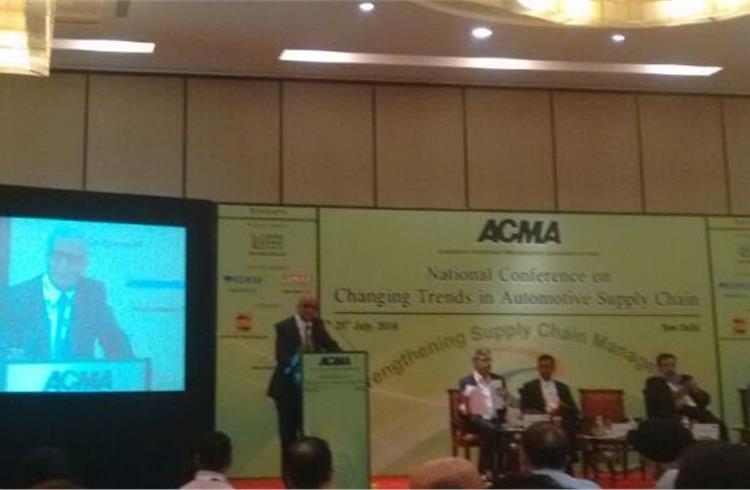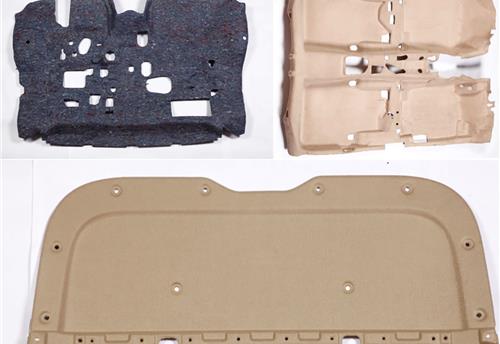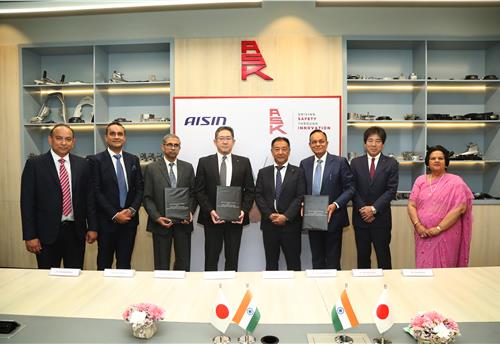Indian auto industry experts moot investment in new tech, capacity and kaizen to achieve global standards
With lowering barriers and more Free Trade Agreements being signed between countries enabling more access to global markets, Indian auto component firms aim to tap global opportunities to the optimum.
Global markets are fast evolving and becoming more open with barriers to import finished goods coming down in recent times.
In the coming years, there would be a flatter world sans barriers in automotive trade and companies need to be cognisant of this fact to be ready to tap opportunities that present themselves.
From being a blip 35 years ago on the global auto market, the growing Indian automotive industry is en route to reaching global levels. India is at present the sixth largest car manufacturer globally and is slated to reach the third position in the pecking order by 2020, said RC Bhargava, chairman of Maruti Suzuki India, while speaking at the National Conference on ‘Changing trends in automotive supply chain’ organised today by the Automotive Components Manufacturers Association (ACMA).
“At present 31 percent of the small cars sold in the world market are made in India and this figure will rise in the future. India leads in small car production and this will continue giving India a clear advantage in meeting global demand for small cars. What it portends for auto companies in India is a huge opportunity as opportunities knock on your door once only and don’t return once missed,” he elaborated.
With lowering barriers and more Free Trade Agreements being signed between countries enabling more access to global markets, Indian auto component firms need to tap global opportunities to the optimum. For this, maintaining global quality levels is a must. Additionally, new technologies that are not necessarily pathbreaking but relate to manufacturing need to be adopted. Simultaneously, improvements in quality and in being cost competitive besides developing in-house knowhow with a strong engineering division and R&D capability will have to be nurtured over the years as these cannot be developed overnight.
“If the Indian supply chain imports technology but does not make further improvements on it, the company will lose out,” elaborated Bhargava.
With the Indian market and demand for passenger cars pegged to grow at a faster pace after the slowdown over the last couple of years, a higher pace of growth is expected in the current fiscal despite the National Green Tribunal’s spanner on diesel cars.
“I don’t see the target of 5 million cars by 2020 falling short in the Indian market, and that will make us number 4 globally,” admitted Bhargava. For this, several Indian component makers have to achieve global scale and cannot plead lack of volumes for remaining small or fragmented, he argued.
Earlier, Arvind Balaji, president, ACMA, had stated that the Reserve Bank of India’s guidelines don’t allow Indian suppliers to borrow funds to invest in shares or in other companies so how does one consolidate.
But Bhargava suggested that instead suppliers could grow organically and generate their own internal resources to achieve global scale through specialisation. Also, their equity base should be enlarged and they could go public for mopping up funds. All this would require a 110 percent commitment from the company’s management towards growing the organisation in a professional manner. In addition to having the right attitude to grow further, the capacity to make continuous improvements in everything in the Japanese style would distinguish the winner from those who were unsuccessful.
“We are lacking in it. Those who constantly increase the productivity of their companies and save costs without a break will be well on their way to becoming a global player,” he maintained. Over the next 5-7 years, the Indian supply chain will have to nurture this mindset, have the motivation and the objective to achieve it. Companies will have to target a long-term business goal that will facilitate make in India.
Among the prevailing challenges for the auto component sector, Balaji spoke about the inverted duty structure that made import of raw materials costly in the absence of proper government policies. For promoting localisation and manufacturing in India, he suggested the Indian government step in to fund companies that invest in R&D, new technologies and in building capability.
Global players should also be encouraged to localise and an auto electronics study is undertaken to understand what technologies would be coming over the next 10 years into the country in this area to enable Indian suppliers to enter the segment and focus on quality and technology.
RELATED ARTICLES
Uniproducts India targets 15% growth till FY2027, eyes new EV OEMs for NVH parts
The Noida-headquartered company, which is a leading manufacturer of roof liners, floor carpets, sound insulation materia...
Ford to build more EV software capability at Chennai tech hub
Ford Business Solutions India, which currently employs 12,000 personnel set to add 3,000 more; Ford, which is known to b...
ASK Automotive to set up JV with Aisin to sell aftermarket parts for cars
Ask Automotive will have 51% of the equity of the joint venture to be set up with Aisin Asia (Thailand) Company and Aisi...





 By Shobha Mathur
By Shobha Mathur
 25 Jul 2016
25 Jul 2016
 3833 Views
3833 Views









